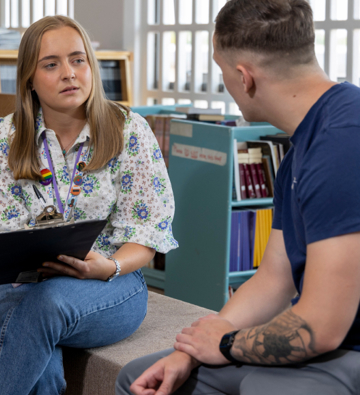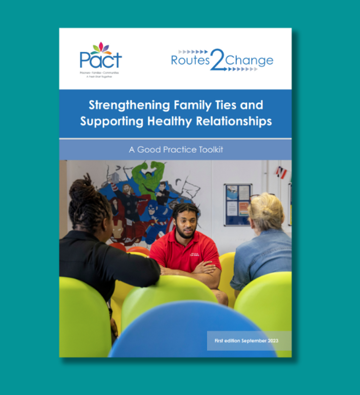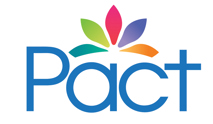Routes 2 Change
Our Routes 2 Change team works in two London prisons – HMP Brixton and HMP YOI Isis - providing practical and emotional support to prisoners and their children and families.
Support is tailored to individual needs and can be accessed from a prisoner’s initial days in custody, throughout their sentence, and for up to six months after their release.
Routes 2 Change is now a core part of operational regimes in both prisons and places family relationships at the heart of prison life. It provides tailored support not just to the men in prison but also to their families on the outside, from the first night in custody throughout the sentence and up to six months after release.
Evidence shows that maintaining contact between prisoners and their families can reduce the likelihood of reoffending by almost 40%. Additionally, providing appropriate support for prisoners’ children lowers their chances of later involvement in the criminal justice system.
Routes 2 Change demonstrates how family work that connects custody and community can successfully promote positive transformation for those affected by the criminal justice system. It empowers prison leavers to maintain healthy relationships, take care of their wellbeing, and ultimately live lives free from crime. Not only is this good for individuals and their families, but it also benefits society as a whole.
My relationship with my kids is the best it can be for someone that’s in prison. They look forward to coming to see me. It makes me think about my future and what I want to do with my life. It reminds me that I need to better myself and just get out and be a good dad.
Martin - Routes 2 Change Service User
How does Routes 2 Change work?
Step 1 – Triage on reception for everyone
Everyone coming into the prison is triaged on reception to establish the nature of their support network, whether they have children, if their family has support and whether there is a need to signpost to other services.
Step 2 – Support for the prisoner
A keyworker is allocated to the prisoner, who initially gains a comprehensive understanding of the individual’s family dynamics, strengths and weaknesses and then uses this to establish a tailored support plan. Routes 2 Change casework is considered core regime activity, on a par with education or healthcare, and is accommodated within the prison’s timetabling, staffing and movement.
Step 3 – Support for the family
The children and families of prisoners have high levels of need that, if unmet, can cause family breakdown and inter-generational offending. Routes 2 Change recognises that they need support in their own right and provides access to befriending and peer support, therapeutic play for children and courses with their loved ones inside to help maintain healthy relationships.
Step 4 – Support through the gate and after release
Directly prior to release, prisoners are given support to help them adapt to the outside world, including practical support such as a departure bag with clothing and other essentials. Prison leavers and their families can continue to access support up to six months after release, including practical help with form-filling, accessing benefits and attending appointments.
Involving prisoners
We believe that the people who use our services should get the chance to influence how they are designed and delivered.
In Brixton and Isis, we have appointed Routes 2 Change ‘champions’. Their role is to support other men on the wings to engage with the project and share ideas and issues as they arise. Our champions also take part in ‘Shadow Advisory Boards’ that allow them the opportunity to shape the delivery of Routes 2 Change in the prison.
For further information on Routes 2 Change or to contact the team, email r2c@prisonadvice.org.uk.

Routes 2 Change Toolkit
We believe that Routes 2 Change represents the next big step forward in the evolution of family and healthy relationship services. Our good practice toolkit provides tried and tested ways of working with people with convictions, in prison and on probation, and with their children and families.
Progress demands a ‘one team’ approach, leadership, and cooperation, drawing on the combined strengths of HMPPS and the third sector. We hope this toolkit, which will continue to evolve, will become a core resource as we work together to create the routes to change.


